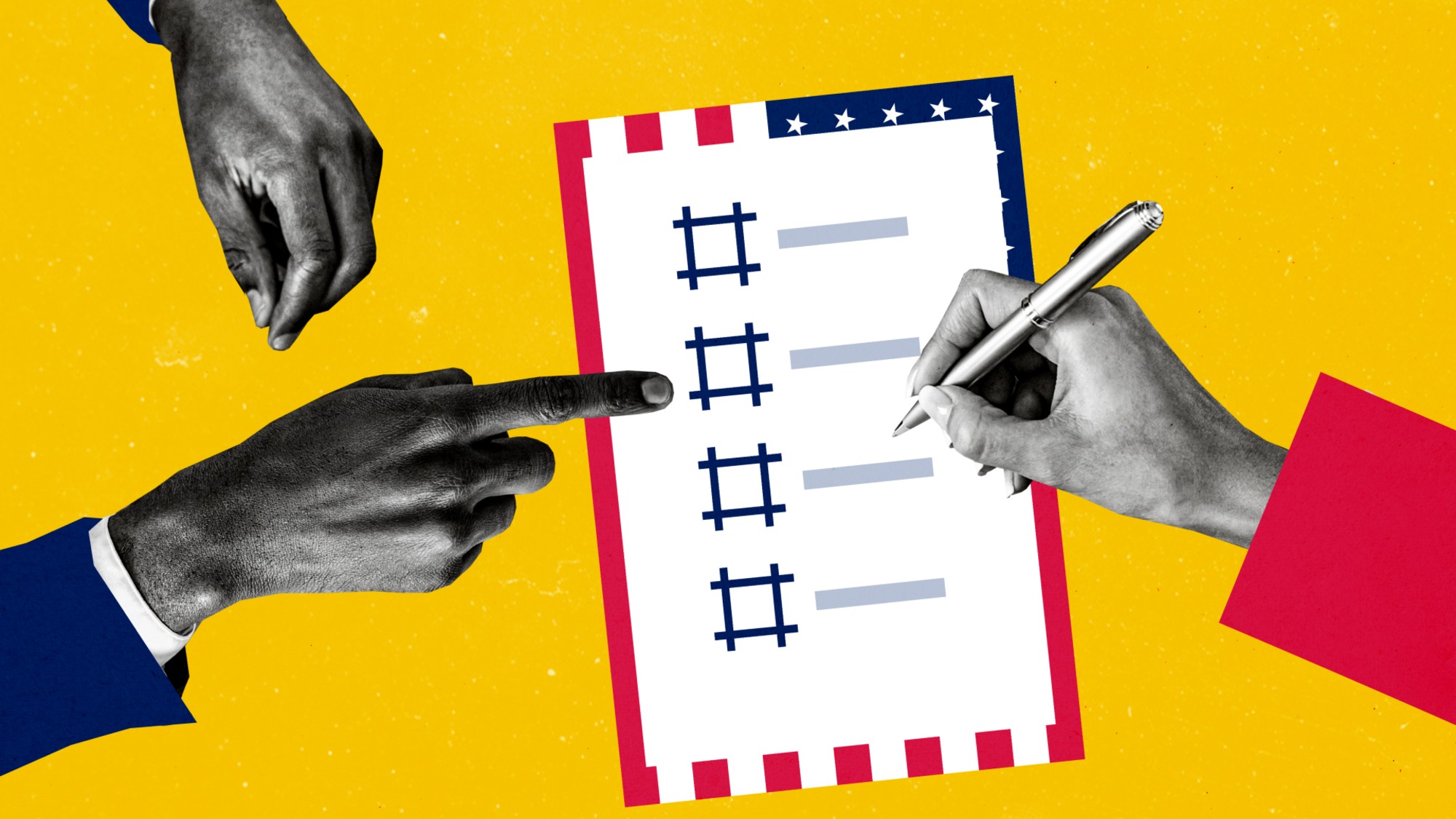Can Trump put his tariffs on stronger legal footing?
Appeals court says 'emergency' tariffs are improper


A free daily email with the biggest news stories of the day – and the best features from TheWeek.com
You are now subscribed
Your newsletter sign-up was successful
President Donald Trump's tariffs are suddenly on shaky legal ground. A federal appeals court on Aug. 29 ruled that Trump overreached his authority by raising taxes on imports. That leaves open the question of what comes next.
The court's ruling "represents a major setback" for the president, said CBS News. Congress has the constitutional power to impose tariffs, but Trump said a 1977 law, the International Emergency Economic Powers Act (IEEPA), allowed him to take action by declaring America's trade deficits a "national emergency." The 11-member court panel said it was "unlikely" that Congress intended the law to "grant the President unlimited authority to impose tariffs." The ruling is a "serious threat to one of the president's most high-profile economic policies," said Nigel Green, the CEO of deVere Group.
Next stop: The Supreme Court. Trump is betting justices will back his "sweeping assertion of his own authority," said The Wall Street Journal. That optimism "makes sense" given the conservative justices' penchant for going along with the president's moves. But the tariff case "may not be so easy to predict." The plaintiffs in the tariff lawsuit are relying on arguments the justices themselves used to "strike down excesses it found in Biden administration policies."
The Week
Escape your echo chamber. Get the facts behind the news, plus analysis from multiple perspectives.

Sign up for The Week's Free Newsletters
From our morning news briefing to a weekly Good News Newsletter, get the best of The Week delivered directly to your inbox.
From our morning news briefing to a weekly Good News Newsletter, get the best of The Week delivered directly to your inbox.
What did the commentators say?
Trump could solve his legal problem simply by asking the "compliant, Republican-controlled Congress" to put its stamp of approval on the tariffs, said The Washington Post editorial board. The case at the Supreme Court will be tricky: IEEPA "doesn't even mention the word tariffs." If the Congress that passed the law wanted the president to have that kind of power, "it would have said so." It is telling that Trump will not take the matter to a GOP-controlled Congress that has "so far shown nothing but loyalty to this president's agenda."
The Supreme Court "could uphold Trump's tariffs," said Jonathan H. Adler, a law professor at William & Mary Law School, at The Wall Street Journal. The "whole point" of IEEPA is to "give the president broad authority" to respond to emergencies. The law may not explicitly authorize tariffs in such circumstances, yet courts have "rarely felt competent to second-guess" the president when it comes to "national security considerations." But there is a "ready solution" to make the argument moot: "The executive can ask Congress for authority" to implement the import taxes.
What next?
The White House is "putting maximum pressure on the high court" to override Friday's ruling, said Axios, insisting that "fentanyl flows from overseas and trade deficits" justify the president's use of emergency powers. The end of Trump's tariff regime would be the "end of the United States," said trade adviser Peter Navarro. Other observers simply want the issue resolved one way or the other. Business owners "just want to know what the rules of the road are," said Sen. James Lankford (R-Okla.). They will have to wait: The appeals court stayed its ruling to Oct. 14, leaving the tariffs in place while the Trump administration prepares its appeal.
A free daily email with the biggest news stories of the day – and the best features from TheWeek.com
Joel Mathis is a writer with 30 years of newspaper and online journalism experience. His work also regularly appears in National Geographic and The Kansas City Star. His awards include best online commentary at the Online News Association and (twice) at the City and Regional Magazine Association.
-
 ‘This is something that happens all too often’
‘This is something that happens all too often’Instant Opinion Opinion, comment and editorials of the day
-
 House votes to end Trump’s Canada tariffs
House votes to end Trump’s Canada tariffsSpeed Read Six Republicans joined with Democrats to repeal the president’s tariffs
-
 Bondi, Democrats clash over Epstein in hearing
Bondi, Democrats clash over Epstein in hearingSpeed Read Attorney General Pam Bondi ignored survivors of convicted sex offender Jeffrey Epstein and demanded that Democrats apologize to Trump
-
 House votes to end Trump’s Canada tariffs
House votes to end Trump’s Canada tariffsSpeed Read Six Republicans joined with Democrats to repeal the president’s tariffs
-
 How did ‘wine moms’ become the face of anti-ICE protests?
How did ‘wine moms’ become the face of anti-ICE protests?Today’s Big Question Women lead the resistance to Trump’s deportations
-
 Judge blocks Trump suit for Michigan voter rolls
Judge blocks Trump suit for Michigan voter rollsSpeed Read A Trump-appointed federal judge rejected the administration’s demand for voters’ personal data
-
 Grand jury rejects charging 6 Democrats for ‘orders’ video
Grand jury rejects charging 6 Democrats for ‘orders’ videoSpeed Read The jury refused to indict Democratic lawmakers for a video in which they urged military members to resist illegal orders
-
 How are Democrats trying to reform ICE?
How are Democrats trying to reform ICE?Today’s Big Question Democratic leadership has put forth several demands for the agency
-
 Democrats push for ICE accountability
Democrats push for ICE accountabilityFeature U.S. citizens shot and violently detained by immigration agents testify at Capitol Hill hearing
-
 Trump’s plan to ‘nationalize’ US elections
Trump’s plan to ‘nationalize’ US electionsTalking Points States oversee voting. Will Republicans take over?
-
 Supreme Court upholds California gerrymander
Supreme Court upholds California gerrymanderSpeed Read The emergency docket order had no dissents from the court
